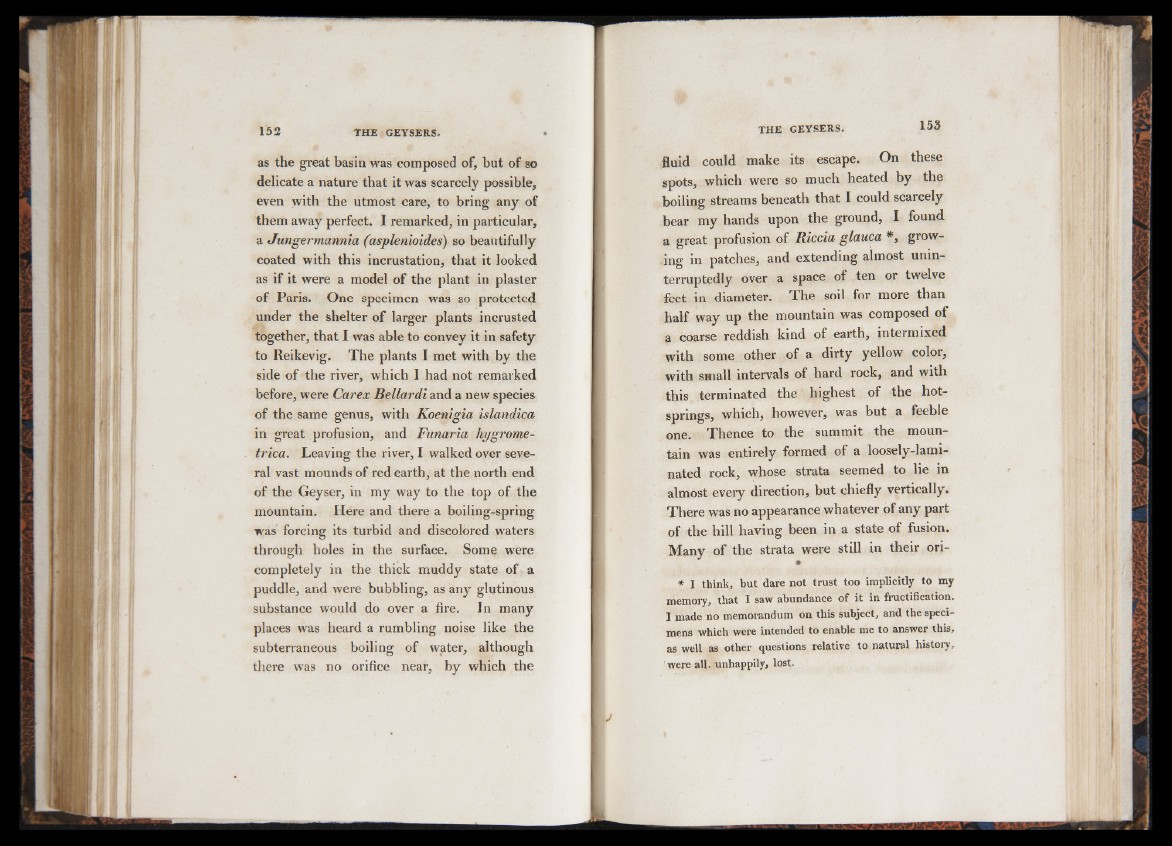
as the great basin was composed of, but of so
delicate a nature that it was scarcely possible,
even with the utmost care, to bring any of
them away perfect. I remarked, in particular,
a Jungermannia (asplenioides) so beautifully
coated with this incrustation, that it looked
as if it were a model of the plant in plaster
of Paris. One specimen was so protected
under the shelter of larger plants incrusted
together, that I was able to convey it in safety
to Reikevig. The plants I met with by the
side of the river, which I had not remarked
before, were Car ex Reliardi and a new species
of the same genus, with Koenigia islándica
in great profusion, and Funaria hygrome-
trica. Leaving the river, I walked over several
vast mounds of red earth, at the north end
of the Geyser, in my way to the top of the
mountain. Here and there a boiling-spring
was forcing its turbid and discolored waters
through holes in the surface. Some were
completely in the thiek muddy state of a
puddle, and were bubbling, as any glutinous
substance would do over a fire. In many
places was heard a rumbling noise like the
subterraneous boiling of water, although
there was no orifice near, by which the
fluid could make its escape. On these
spots, which were so much heated by the
boiling streams beneath that I could scarcely
bear my hands upon the ground, I found
a great profusion of Riccia glauca *, growing
in patches, and extending almost uninterruptedly
over a space of ten or twelve
feet in diameter. The soil for more than
half way up the mountain was composed of
a coarse reddish kind of earth, intermixed
with some other of a dirty yellow color,
with small intervals of hard rock, and with
this terminated the highest of the hot-
springs, which, however, was but a feeble
one. Thence to the summit the mountain
was entirely formed of a loosely-laminated
rock, whose strata seemed to lie in
almost every direction, but chiefly vertically.
There was no appearance whatever of any part
of the hill having been in a state of fusion.
Many of the strata were still in their ori-
* I think, but dare not trust too implicitly to my
memory, that I saw abundance of it in fructification.
I made no memorandum on this subject, and the specimens
which were intended to enable me to answer this,
as well as other questions relative to natural history,
were all, unhappily, lost.